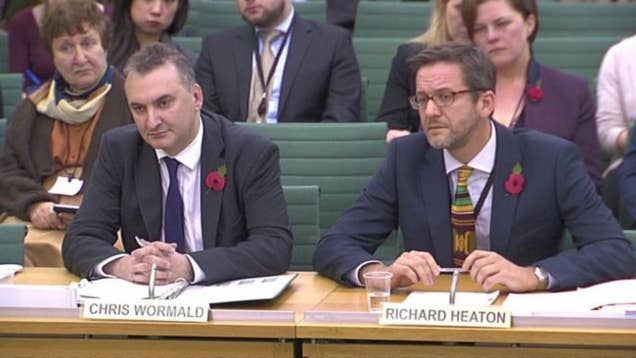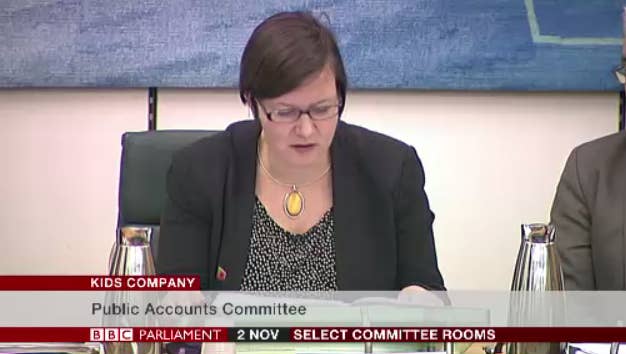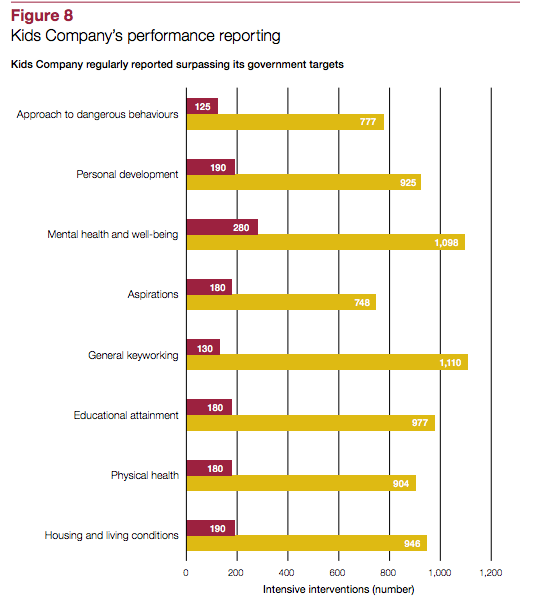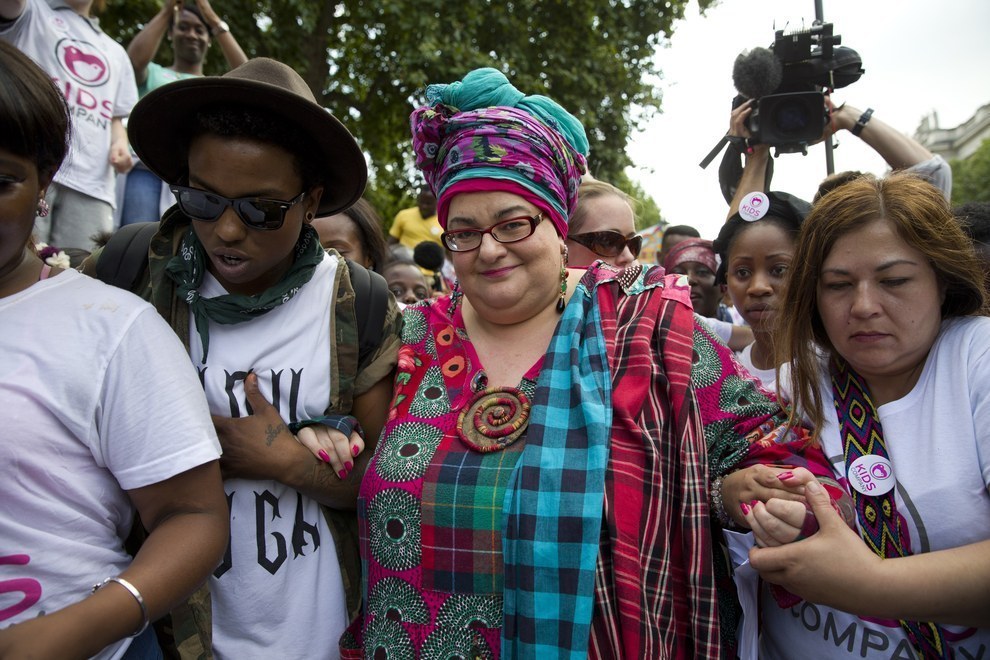
A senior Whitehall official has acknowledged that he may have been "naive" to hand Kids Company a £4.3 million grant this year, during a parliamentary grilling that saw the chair of the Commons public accounts committee describe flaws in the government's handling of the charity as "staggering".
Richard Heaton, former permanent secretary at the Cabinet Office, said he had decided to give the charity the grant in April without seeking a ministerial direction in the hope that the money would finally put it on a secure financial footing. "I took a judgement. It may not have been the right one," he said, before revealing he was "not totally comfortable" with the decision.
Heaton, who told the MPs that Kids Company was a "controversial" charity with "an unusual funding situation", went on to describe how he was "startled, shocked, surprised" when a few months later the charity came back to the government to ask for a further £3 million.
He opposed that grant but was overruled by Cabinet Office ministers Oliver Letwin and Matt Hancock. Asked why the charity had been given the money against his advice, Heaton said the ministers "quite reasonably took the view that it was a punt that was worth funding". On 5 August, a few days after receiving the cash, the charity collapsed.
Heaton was being questioned along with Chris Wormald, permanent secretary to the Department for Education, over how Kids Company received £46 million of public money over 15 years despite continuous concerns about its financial management and delivery claims.
The mandarins denied the charity had received special treatment as a result of its political connections, though at one point Wormald conceded: "If you want to define special treatment as 'Were people taking special interest?', yes, they were."
However, despite acknowledging it was the "prime minister's favoured charity" and describing it at various points as "well-networked" and "well-liked politically", both men insisted they had never been put under political pressure to continue giving it large grants.
They were keen to present their "learning points" from the saga – four from Wormald, three from Heaton – some of which the committee greeted with a hint of derision. Heaton's first lesson, "Evidence first decision second is better," was greeted with a sarcastic "Gosh, a revelation" from committee chair Meg Hillier.
At the end of the occasionally testy two-hour session, Hillier told the civil servants the committee found it "staggering" that the questions had not been raised "some time before today, when everything has gone belly up".
After the hearing, she told BuzzFeed News: "You hear from what they said that there was a lot of evidence available to show that there were challenges, but at no stage did they seek direction from ministers. But maybe what came out of the hearing was that maybe they didn’t present all that information to ministers. So we’re mulling over what to say in our report."
Labour member Caroline Flint said she was also concerned by what the committee had heard from the mandarins about the charity's support from senior politicians, including prime minister David Cameron.
"That's very concerning," she said. "Civil servants should be able to operate without fear or favour of anything. Part of their job is to provide the minister of prime minister with the facts of the case, and the facts of this case seem to suggest clearly that the finances of Kids Company were out of control and they weren’t meeting the conditions of the grants being given to them.
"The decision to give them a full year’s money back in April was the wrong one to be made."

During the hearing, the civil servants gave few revelations about the decisions of their ministers. Heaton said he took the decision to hand over the £4.3 million in April in part because his "single biggest worry" was that Kids Company could "go bust at any time".
Asked what restructuring plans his department had seen before awarding the grant, he replied that the charity had shown "a willingness to make a plan" – a distinction he conceded was "weak".
Wormald defended his decision in February 2013 to present a "public interest case" to ministers recommending that they continue funding the charity despite its failure to win a grant through a competitive bidding process a few months earlier.
Heaton, for his part, answered a question about whether he was right and his ministers wrong over the fateful £3 million handed over days before the charity shut down with, "Um."
Former children's minister Tim Loughton has previously blamed No. 10 for overruling officials in 2012 after David Cameron received a letter from founder Camila Batmanghelidjh – a version of events denied by Downing Street. Wormald, for his part, said he "didn't see anything unusual in the correspondence or the audit trail".
Many of the most uncomfortable moments came when the pair had to discuss the evidence of successful outcomes that were felt to be justification for the charity to receive such vast amounts of cash. At one point Caroline Flint told them: "You’ve had 13 years, £42 million of public money, and you still think it’s OK for an experiment."

There was particular attention paid to the results surrounding a £200,000 contract awarded by the DfE in 2013 to Methods Consulting to monitor and evaluate the department's grant funding to Kids Company. The committee expressed scepticism around the figures, which showed Kids Company hugely surpassing government targets (see table above).
In response, Wormald told the committee that the department was “more focused on outputs rather than outcomes”. Heaton said: “Kids Company wasn’t particularly good at measuring their outcomes … until 2015. By the time we made the grant we thought we could embed a proper outcomes framework.”
Conservative committee member David Mowat replied: "One of the reasons might be they were not required to do [this] in order to get [the money].
The MPs, many of whose seats are not based in London, also raised questions about central government's funding priorities. Bridget Phillipson asked why a charity "effectively operating in two London boroughs" received more funding than national charities. Mowat pointed out that there were children in "Sunderland, Doncaster, and Warrington" with similar levels of need to those cared for by Kids Company, which Heaton described as "a fascinating question".
After the hearing, a spokesperson for the charity said: "We are proud of the work achieved by Kids Company. It was good to hear it confirmed by senior civil servants that Kids Company was doing 'important and highly valued work' [and] was 'highly innovative and value for money'. Chris Wormald from the DfE also confirmed that Kids Company was 'not badly governed or lacked financial controls' as has been widely claimed."



